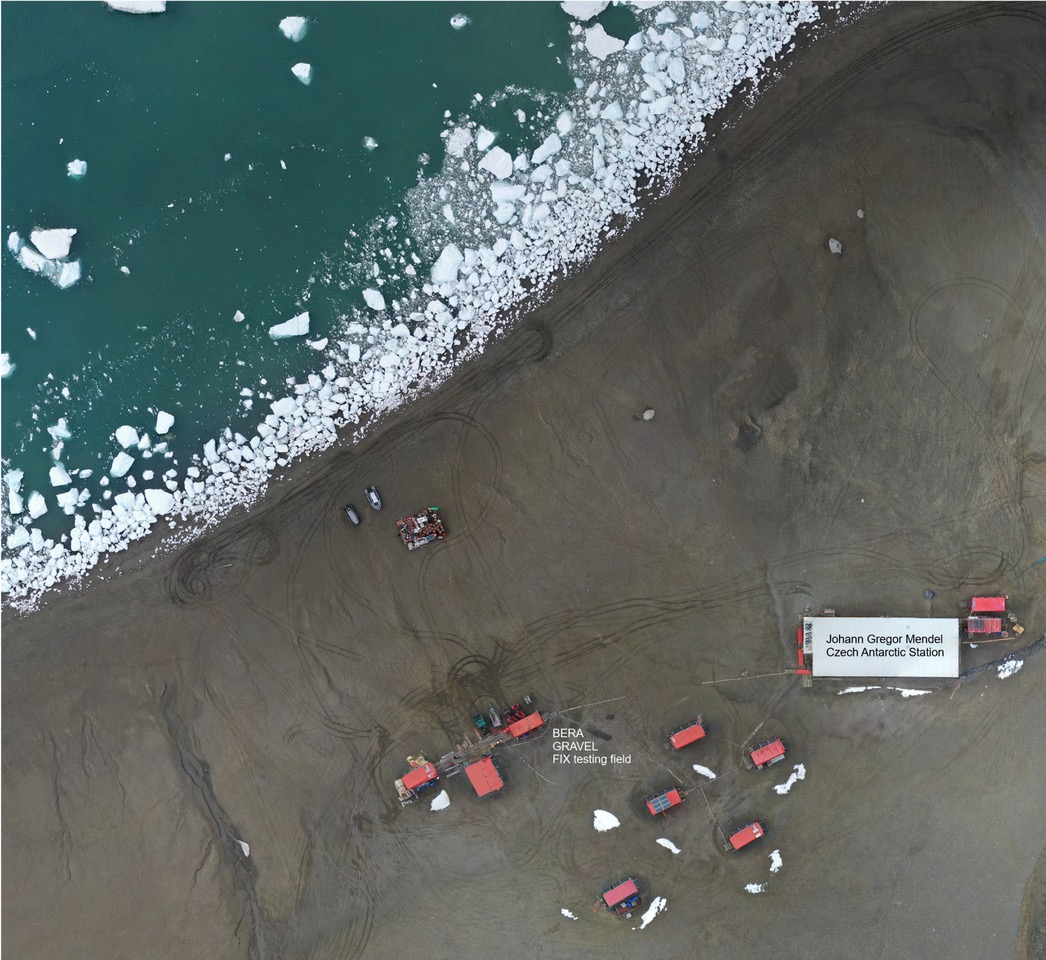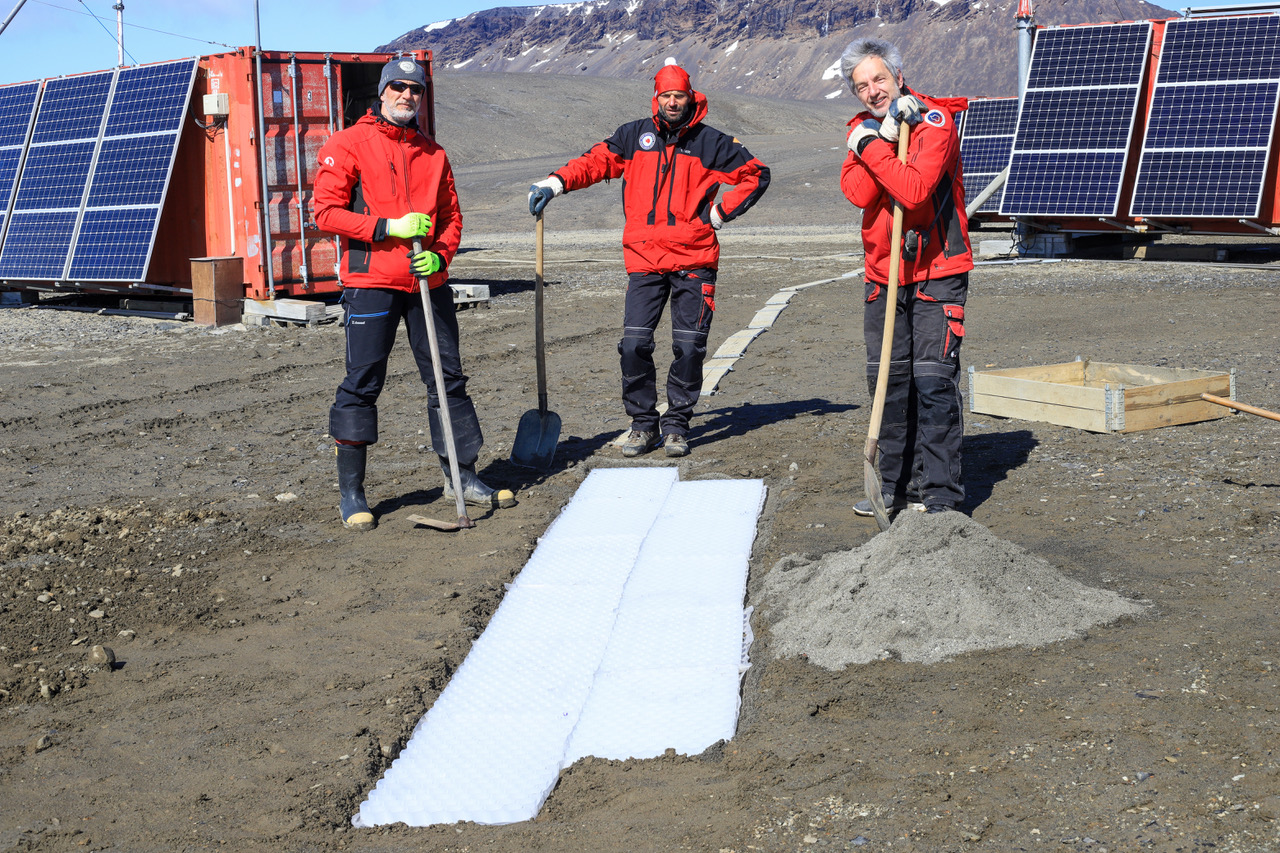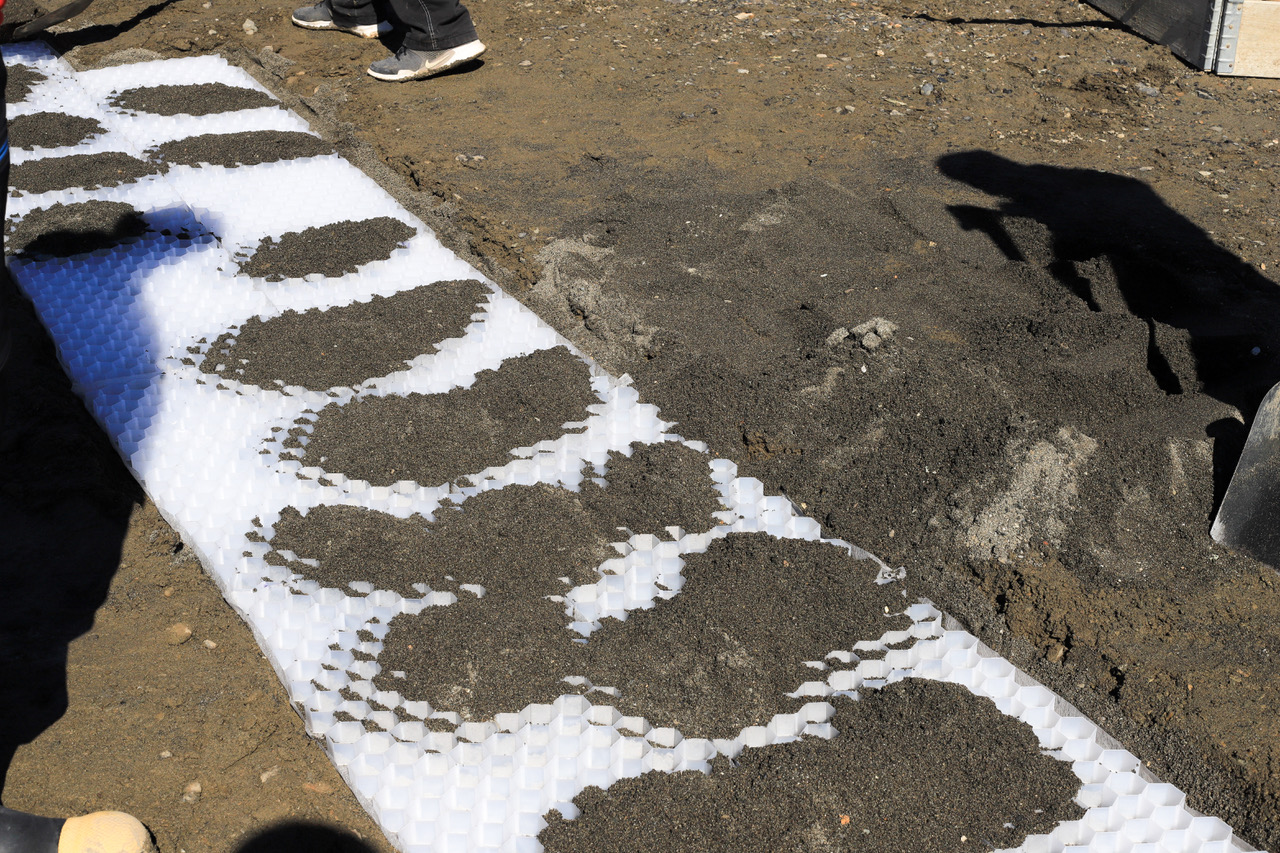Polymers Durability in Antarctica: Primary Results from the Mendel Polar Station
Published: General // Published 16.01.2024
Introducing the Johann Gregor Mendel, Czech Polar Station
In a time when innovation and sustainability are the main priorities, the Johann Gregor Mendel Czech Polar Station (JGM) researchers have broadened their research horizon to include a study for testing polymers under extreme conditions. Hence, an opportunity for a famous product to be highlighted: the BERA Gravel FixTM sheet, a plastic material used in specific circumstances.

Polymer Testing in Extreme Ambient Temperatures
The harsh Antarctic weather conditions, such as intense solar radiation and extreme ambient temperatures are testing the plastics. The research conducted at JGM focused on assessing the polymers’ durability in such specific conditions.
Testing Station - J. G. Mendel
The study was conducted at the J. G. Mendel Polar Station, located on James Ross Island. This location provides extreme conditions, including extremely low temperatures and exposure to UV radiation. Such features make the station ideal for testing the behavior of polymers under extreme conditions.
Materials and Methods
The research included testing high-density polyethylene (HDPE) and polypropylene (PP), with a focus on homopolymer polypropylene (h-PP), in addition to a previous study (Tocháček et. al. 2019). Plus, the BERA Gravel FixTM sheet, a commercial product made from polypropylene impact copolymer (ic-PP), was also introduced into the test.

Primary Results
Primary results showed significant changes in HDPE materials exposed in Antarctica for 9 years, which indicates intense degradation. In contrast, polypropylene presented a lower degradation rate in Antarctica compared to Central Europe, supposedly from the lower UV radiation levels. Besides, primary results on the behavior of the commercial product BERA Gravel FixTM sheet under such extreme conditions were also presented.
Discussion and Implications
All these results provide significant insight into the behavior of polymers under extreme ambient conditions. The conclusions highlight the importance of developing resilient plastics for use in many climatic conditions. Reference to the BERA Gravel FixTM sheet suggests that such a commercial product introduces an essential innovation in the domain of durable plastics

Conclusions and Future Directions
The ongoing study at the J.G. Mendel Polar Station remains essential for the long-term understanding of polymer behavior in extreme ambient temperatures. The conclusions and final results will contribute to the development of advanced materials and promote further research into plastics adapted to extreme ambient conditions.
For the moment there are no comments from our users.
Write a comment or a review!